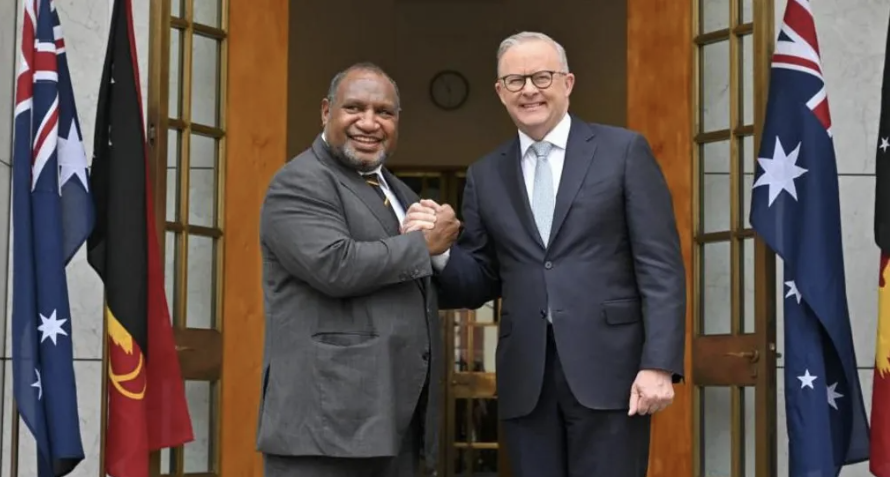Australia and Papua New Guinea (PNG) have entered a new era of defence cooperation with the signing of the Pukpuk Treaty, a landmark agreement that deepens military and strategic ties between the two neighbours. The pact, signed in Canberra by Australian Prime Minister Anthony Albanese and PNG Prime Minister James Marape, comes amid increasing geopolitical competition in the Pacific.
The deal allows up to 10,000 Papua New Guineans to serve in the Australian Defence Force, with the option of gaining Australian citizenship. In return, Australia will gain access to PNG’s military facilities and personnel. Both nations have also pledged to defend each other in the event of an armed attack.
Prime Minister Marape emphasized that the agreement is rooted in shared history and geography, not geopolitics. “Australia is our security partner of choice,” he said, noting that PNG has been transparent with China about its alliances.
The treaty, nicknamed Pukpuk—meaning “crocodile” in PNG pidgin—symbolizes strength and readiness. According to the Australian Broadcasting Corporation, it includes provisions for cooperation in cybersecurity and electromagnetic warfare, as well as annual joint military exercises to enhance regional readiness.
Security analysts say the agreement serves multiple purposes: limiting China’s influence in PNG, addressing Australia’s military recruitment challenges, and reinforcing stability in the Pacific. “PNG has an oversupply of able-bodied citizens willing to serve,” noted Oliver Nobetau of the Lowy Institute.
However, some experts, like Massey University’s Anna Powles, warn that the treaty could challenge PNG’s long-held “friends to all, enemies to none” foreign policy stance.
Signed just a day after PNG marked 50 years of independence from Australia, the Pukpuk Treaty marks a historic step in strengthening Pacific security cooperation and ensuring regional stability in an increasingly contested strategic environment.

